Leadership and Organization

Frey and Osborne’s (2017) “The Future of employment: How susceptible are jobs to computerization?” provided a critical analysis of how common jobs were vulnerable due to rapid advances in technology. The authors described the potential impact of artificial intelligence (AI), automation, robotics, and advanced sensors to transform the work landscape across multiple disciplines. Their research showed that up to 47 percent of U.S. employment was at risk of being automated within one or two decades. In addition to the technological shifts, 2030 marks the retirement peak for baby boomers (Mishel...
Tags:
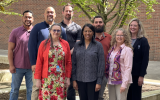
Congratulations to the 2024-2025 Innovation of the Year Award winners from 35 participating League member colleges! The League initiated the Innovation of the Year Award over 35 years ago to recognize local community college programs and initiatives that reflect the spirit of innovation and experimentation on which our organization was founded. The award provides an opportunity for colleges to showcase their innovative efforts; celebrate the dedicated educators, staff, and administrators who are responsible for this exceptional work; and promote a culture of innovation at their institutions....
Tags:

As part of its One College model, HACC, Central Pennsylvania’s Community College, has created a framework referred to as HawkSOAR. It consists of a collegewide cross-functional team focused on the alignment of HACC’s student success efforts. The concept stemmed from the college’s partnerships with Achieving the Dream (ATD) and the Community College Research Center (CCRC), both of which champion evidence-based institutional improvements for student success. HawkSOAR consolidates all programs into one cohesive structure to establish a strategic, data-informed culture for students and employees...
Tags:
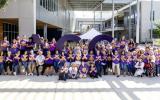
Change is inevitable in higher education, presenting both challenges and opportunities. Leading effectively through change requires courage, innovation, and compassion. Leaders in higher education must not only navigate these transformations but embrace them as opportunities for growth, innovation, and meaningful progress.
The Changing Landscape of Higher Education
Moore’s Law, the 1965 prediction that computing power would double every two years, shaped technological progress for generations (Intel, 2023). But in 2022, this foundational rule crumbled, marking a pivotal shift in how...
Tags:

Established in 1970, Rogue Community College (RCC) serves Oregon residents in Jackson and Josephine counties at campuses in Grants Pass, Medford, and White City. A public two-year community college, RCC offers multiple transfer degrees; more than 80 career and technical education degrees or certificates; a variety of workforce and short-term training, academic skills, and continuing and community education classes; and services to the business community.
Developing College Priorities
After experiencing the fastest enrollment decline in the state over a five-year period, RCC was faced with the...
Tags:
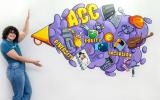
Embracing neurodiversity in educational environments entails challenging traditional perspectives on cognitive differences. The term neurodiversity acknowledges the inherent variation in neurological functioning, emphasizing that diverse cognitive profiles contribute to the richness of the human experience. It encompasses conditions such as autism spectrum disorder, attention-deficit/hyperactivity disorder (ADHD), dyslexia, dyspraxia/developmental coordination disorder, Tourette syndrome, sensory processing disorder, obsessive compulsive disorder, and social pragmatic communication disorder,...
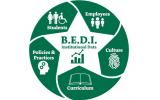
Delta College exists as a microcosm of our larger society and is, therefore, impacted by historical inequities. Many sociocultural factors prevail at Delta College which predate the current student body, faculty, staff, and administration. Nonetheless, we cannot deny that we all contribute to the current health and vitality of our learning community. Grace Lee Boggs (Harewood & Keefer, 2009) wisely asserted that “you cannot change any society unless you take responsibility for it, unless you see yourself as belonging to it and responsible for changing it” (para. 60). We are committed to...
Tags:

Community colleges serve their local communities by providing quality, affordable, and accessible education, transfer opportunities, workforce training, and career credentials for the benefit of all those who live and work in the region. To ensure that they provide the education and training needed by businesses, governments, and individuals in their local areas, community colleges must build strong partnerships with local employers, civic leaders, P-12 educational institutions, potential donors, chambers of commerce, and other entities that promote individual and community growth. Very often...
Tags:

In 2008, during a televised event, then White House Chief of Staff Rham Emanuel said, “You never want a serious crisis to go to waste. And what I mean by that is an opportunity to do things that you think you could not do before” (Emanuel, 2008, 0:04). Many articles have been written about the crises the U.S. postsecondary education ecosystem faces regarding relevance, funding, and innovation, all of which demand swift action (Alexander, 2020; Cristensen & Eyring, 2011; Crow & Dabars, 2015; Grawe, 2018; McGee, 2015, Phelan, 2014). However, for many colleges, change has not come...
Tags:

Community colleges play an essential role in preparing the U.S. workforce. Historically, they have responded to the needs of local economies, working closely with industry, government, and other education sectors (Boggs, 2010). Despite the successful track record of community colleges, the nation is faced with a significant challenge: By 2022, skilled technical job openings in the U.S. are projected to exceed the skilled technical labor force by 1.3 percentage points, or about 3.4 million (National Science Board, 2019).
The Challenge
The National Science Board (2019) estimates that there are...
Tags:

Colleges and universities across the U.S. and beyond are striving to recruit and retain a diverse faculty that is representative of their student populations. Institutions have revamped their practices to ensure that faculty diversity is at the forefront of hiring considerations; everything from recruitment practices to committee trainings has been transformed with great care. A recent step taken by Austin Community College (ACC) to enhance its diversity efforts was to pilot the inclusion of the student voice when hiring full-time faculty. While it is standard practice to involve graduate...

To help higher education meet the demands of a diverse generation of students, an ever-changing workforce, and multiple crises affecting the U.S., Rio Salado College is partnering with the Presidents Forum on a new call to action—the Learners First Framework. The framework names ten guiding principles for reform focusing on equity, access, and workforce alignment strategies to help the country as it grapples with equitable access and outcomes, COVID-19, and related economic hardships.
“The events of this past year have brought a heightened sense of urgency to our mission to serve...
Tags:

For many decades, community colleges have been creating and advocating different emphases in organizational culture that reflect their evolving nature and values. Historically, the most visible effort has been the creation of a Culture of Teaching, to the point that the community college has been known until recently as the Teaching College.
A Culture of Teaching
In 1988, the Commission on the Future of Community Colleges, established by the American Association of Community Colleges (AACC), issued the landmark report, Building Communities: A Vision for a New Century. The report emphasized...
Tags:
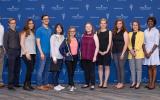
According to Inc. magazine (Curtain, 2017), the number one skill that high paying employers want in employees is the ability to solve complex problems. At Wake Technical Community College in Raleigh, North Carolina, we are striving to help students develop problem-solving skills with the support of staff and faculty across the college through Student Applied Benchmarking (SAB). Students in this program design solutions to problems with the help of college employees. The culmination of this collaborative effort is the SAB Showcase, an event that provides students with the opportunity to...
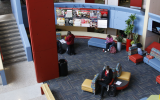
Community colleges enroll over half of the undergraduate students in U.S. higher education and increasingly serve as the gateway to a postsecondary credential, particularly for first-generation and underrepresented students. As noted by researchers (Astin, 1984; McClenney & Marti, 2006; Tinto, 1993), student engagement within and outside of the classroom setting remains central to an institution’s ability to advance student success. At the same time, the growing demographic diversity of community college student bodies means there is no one-size-fits-all institutional approach to...
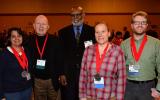
The League for Innovation prides itself on recognizing innovation and excellence in the community college. Colleges and institutions across the U.S. and abroad demonstrate their dedication to students and communities, and the following awards attest to the League’s support for the daily efforts of faculty, staff, administrators, and students.
League Awards
2018 Riegelman Awards for Excellence in Public Health & Health Navigation Education in Community Colleges: Open through October 31, 2017
2017 John & Suanne Roueche Excellence Awards: Open through December 15, 2017
2017 Terry O’...
Tags:

In 2012, the League established the John & Suanne Roueche Excellence Awards to celebrate outstanding contributions and leadership by community college faculty and staff. These awards are open to League Board and Alliance member institutions, and each year’s recipients are recognized in a series of activities and promotions, and honored at special events at the League's Innovations Conference each spring.
The 2016 Excellence Award recipients were recognized at the Innovations Conference in San Francisco, CA, March 12-15, 2017. Special events included an exclusive Excellence Awards...
Tags:
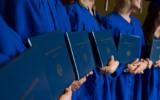
Snead State Community College launched the College Completion Agenda in 2010 to encourage student success with the ultimate goal of earning an associate degree. The initiative became the one thing at the college that drives everything faculty and staff do to encourage student success.
Snead State was the first two-year college in Alabama to sign on to the College Completion Agenda, which developed out of a Call to Action signed by six key educational organizations: Phi Theta Kappa National Honor Society, American Association of Community College, Association of Community College Trustees,...
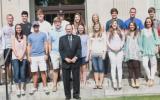
Snead State Community College began its Presidential Scholars program in 2009 as a leadership development opportunity for incoming students who demonstrated academic excellence. Including the 2015-2016 group, 62 students have received the distinction of Presidential Scholars, and the graduation rate among those completing courses at SSCC is 97 percent.
Presidential Scholars represent Snead State at a variety of events, including donor recognition and alumni functions. The students participate in two signature activities each year—completion of the BOLD team building ropes course at Berry...
Tags:










